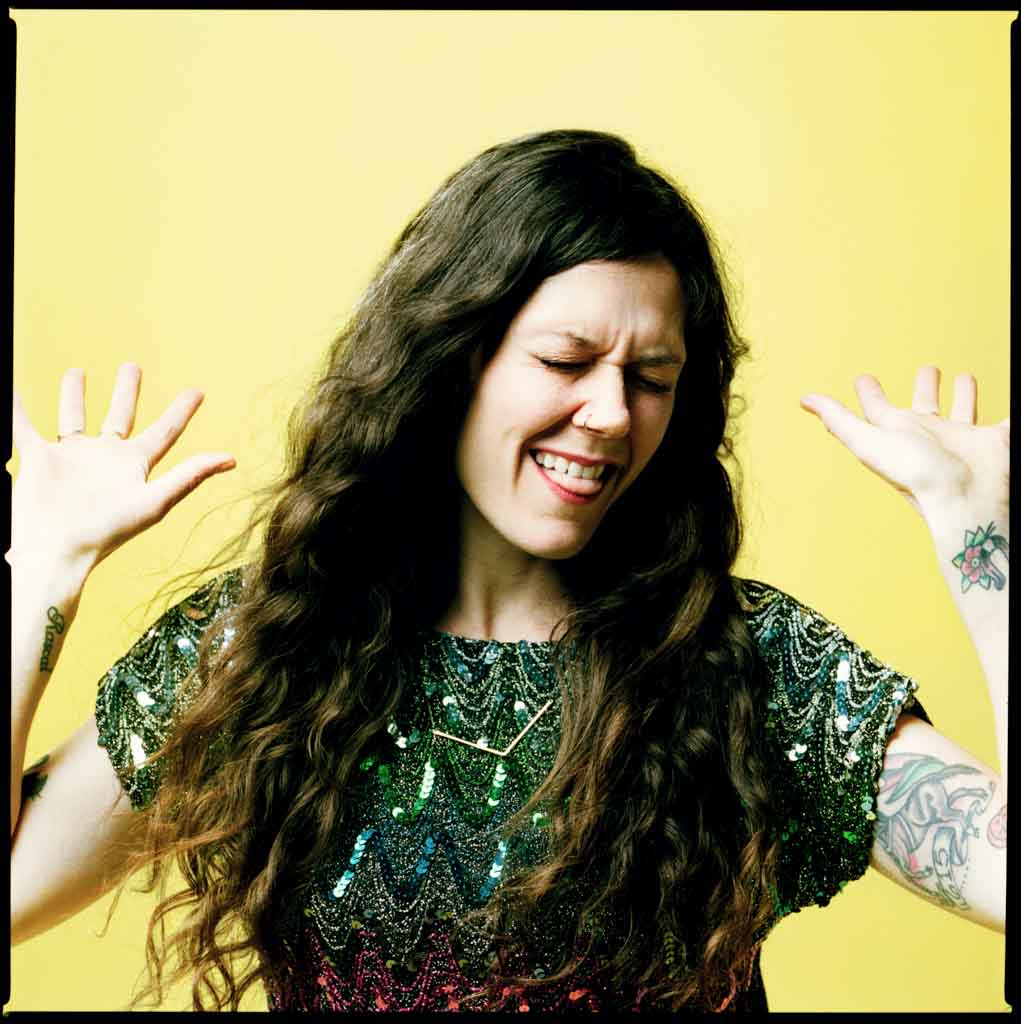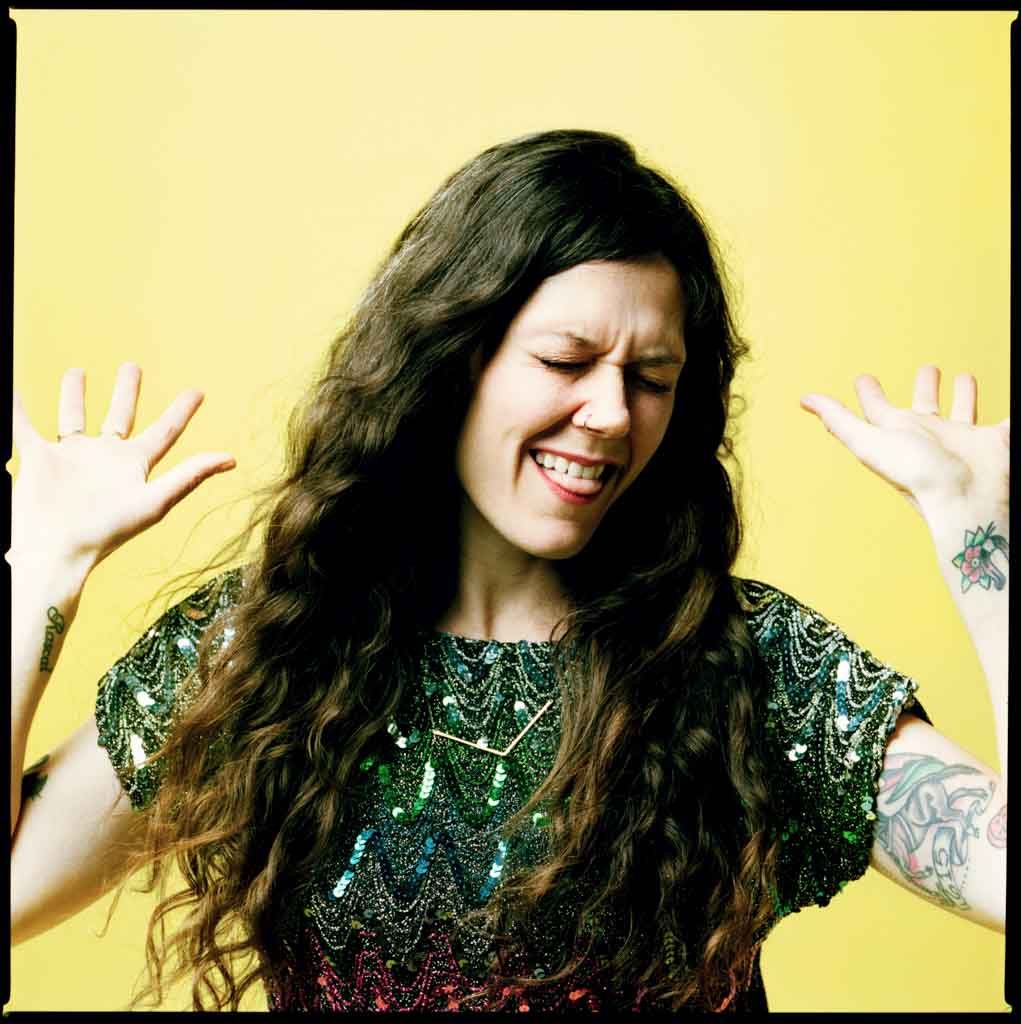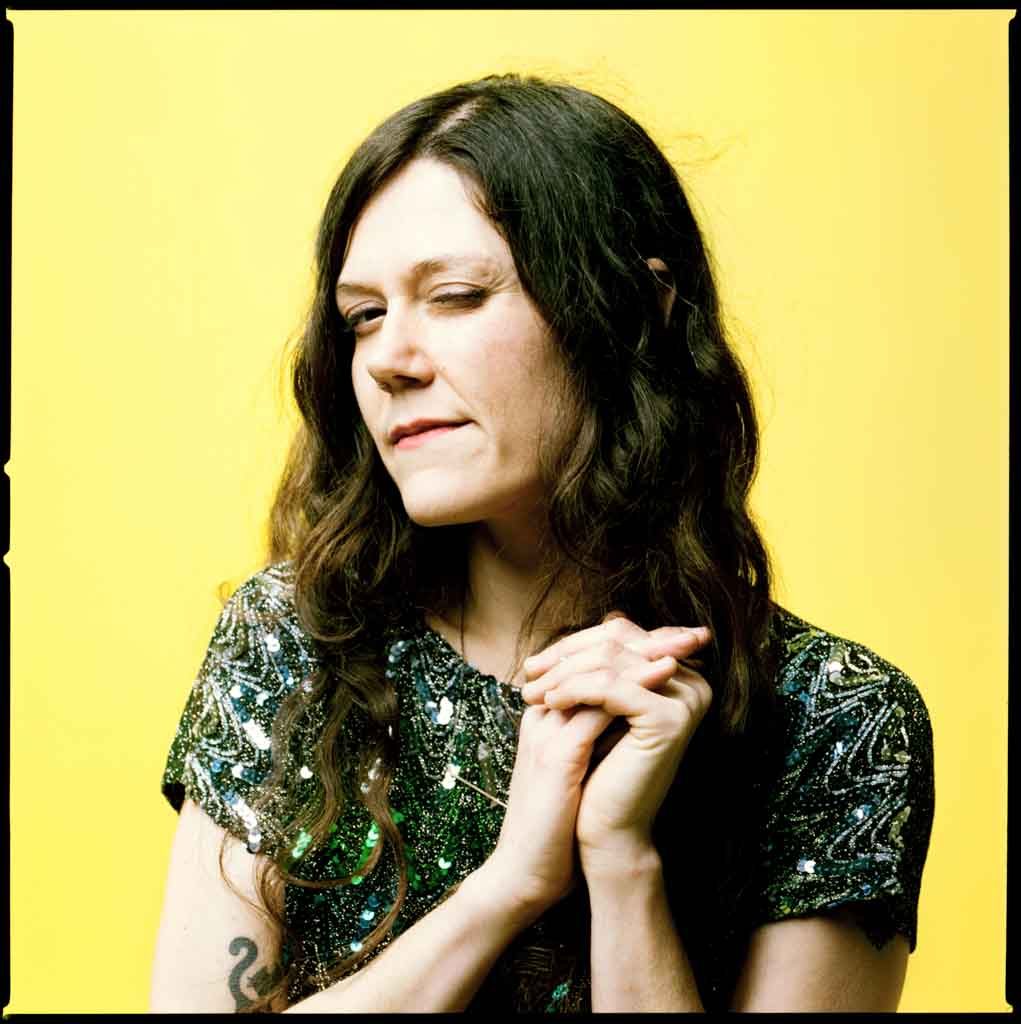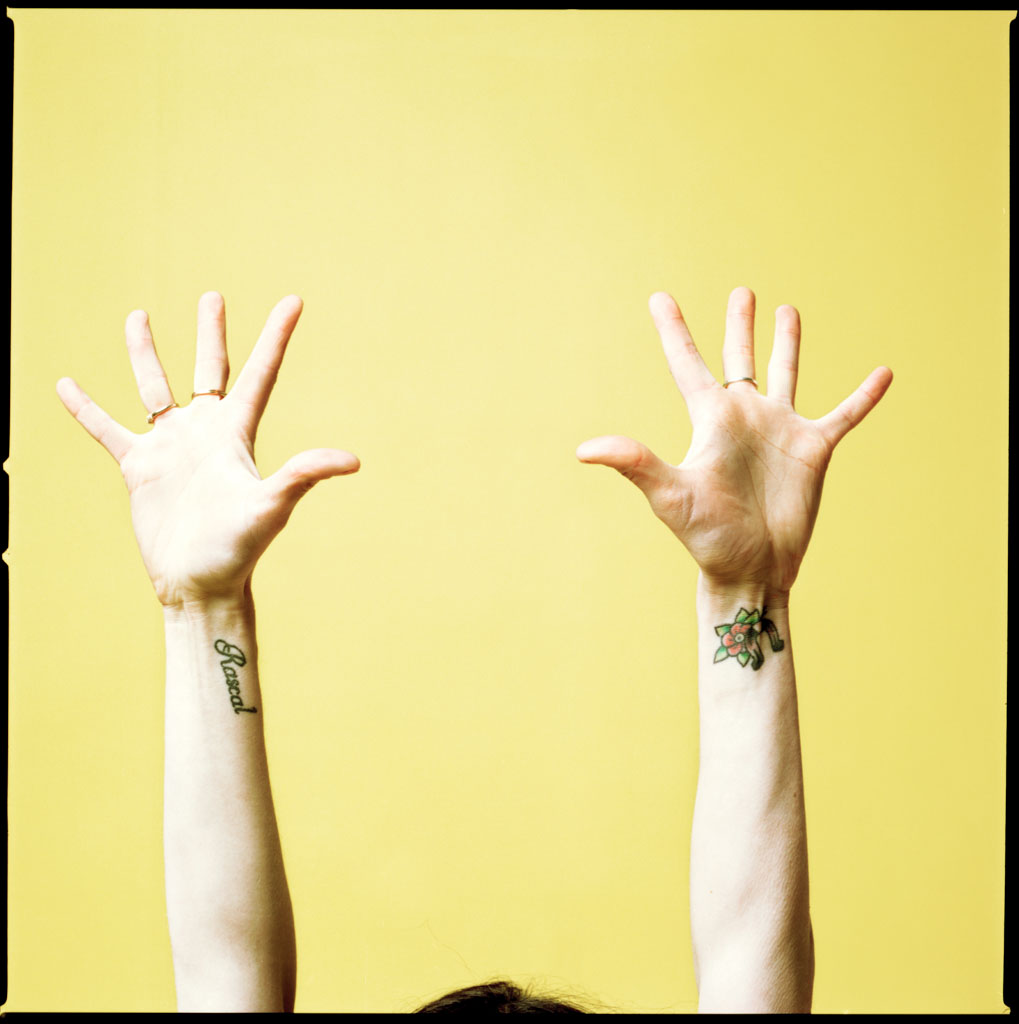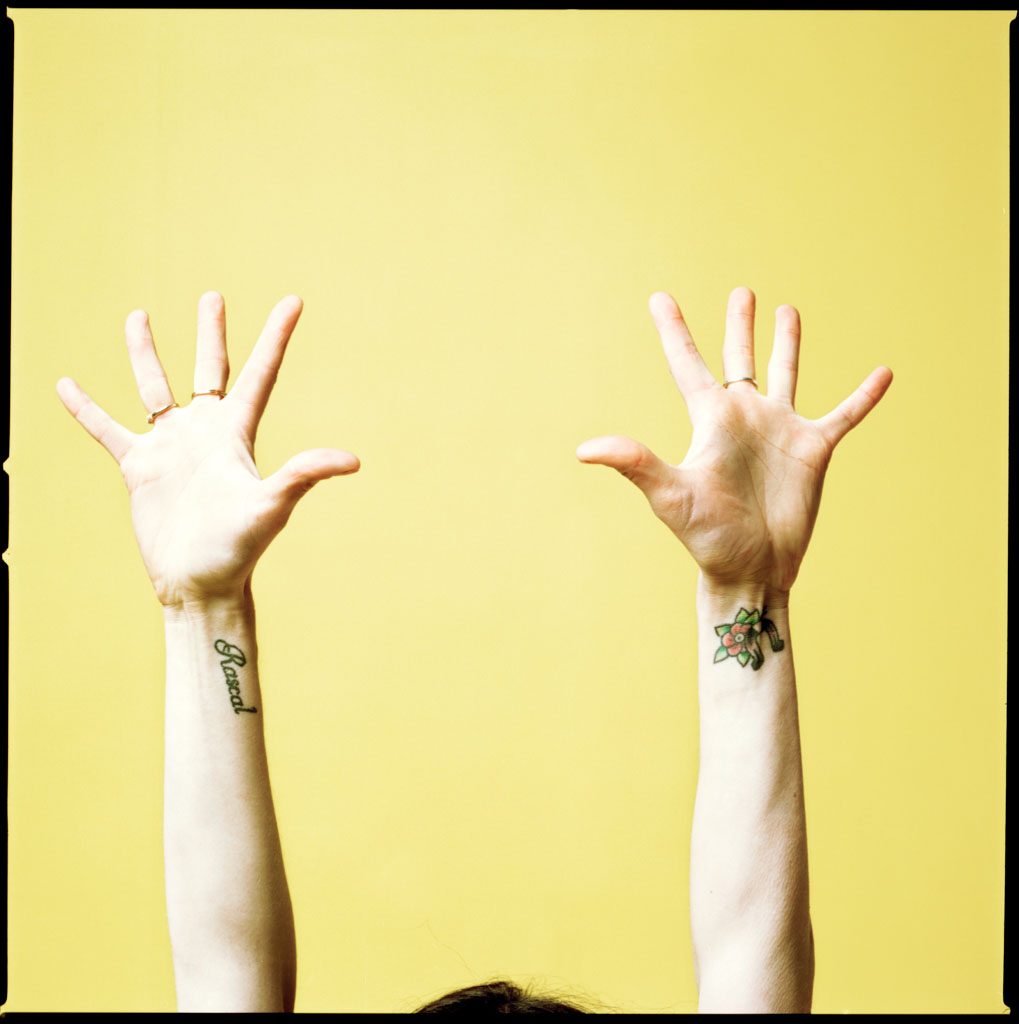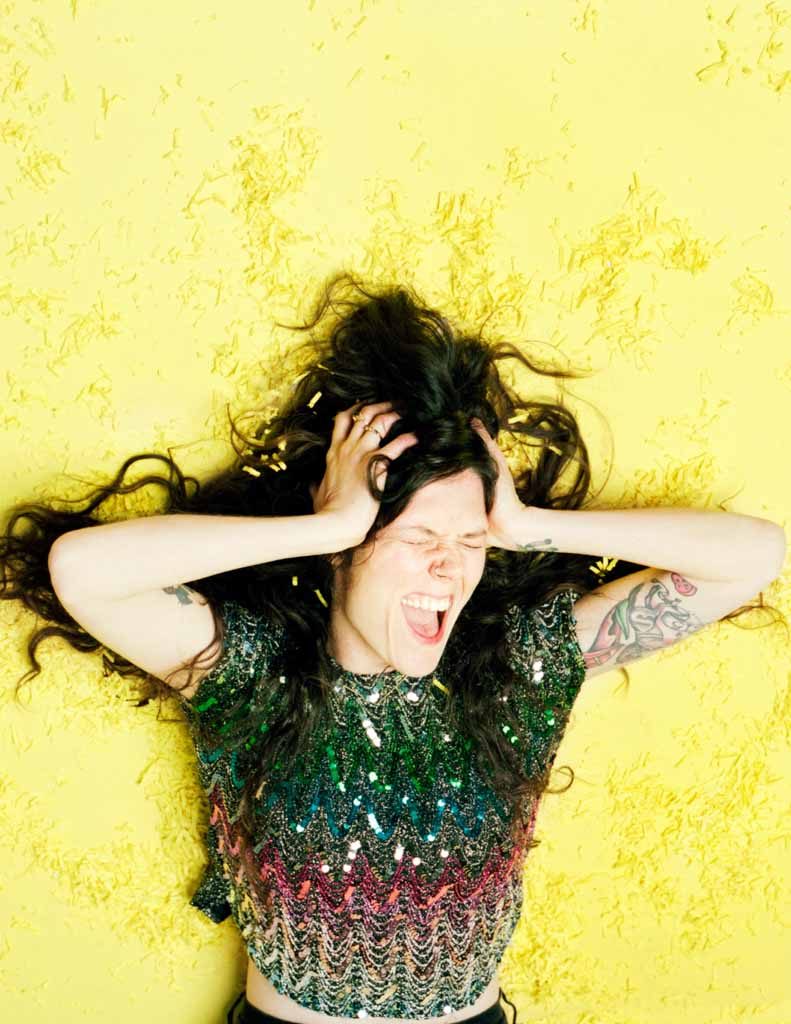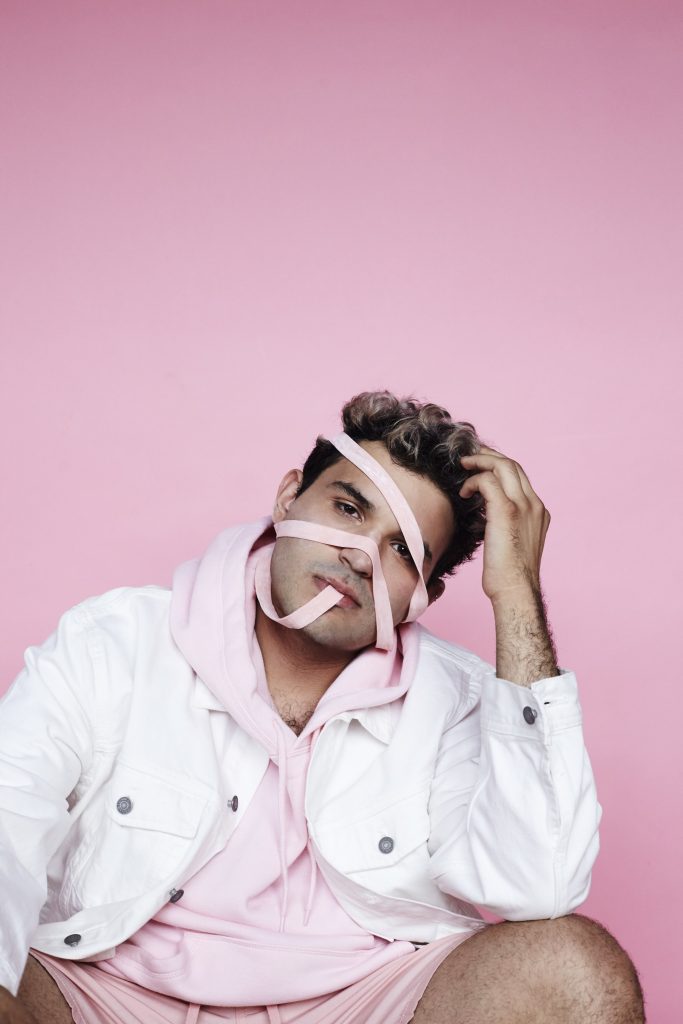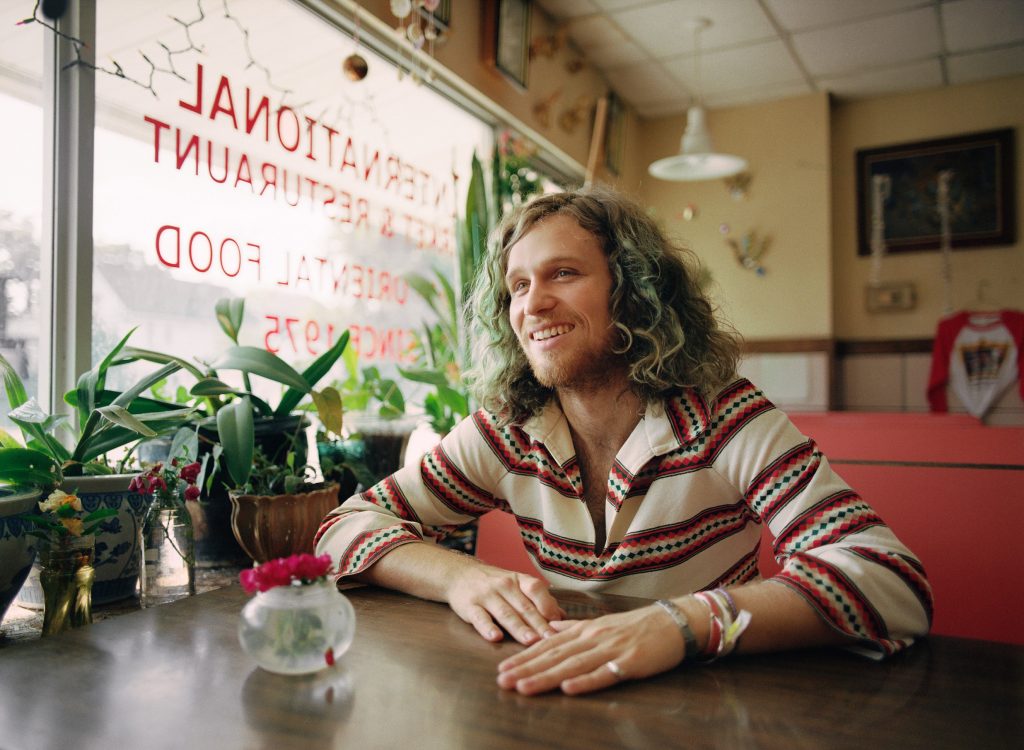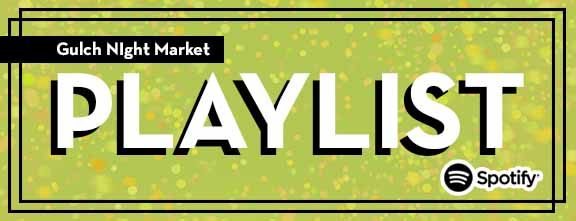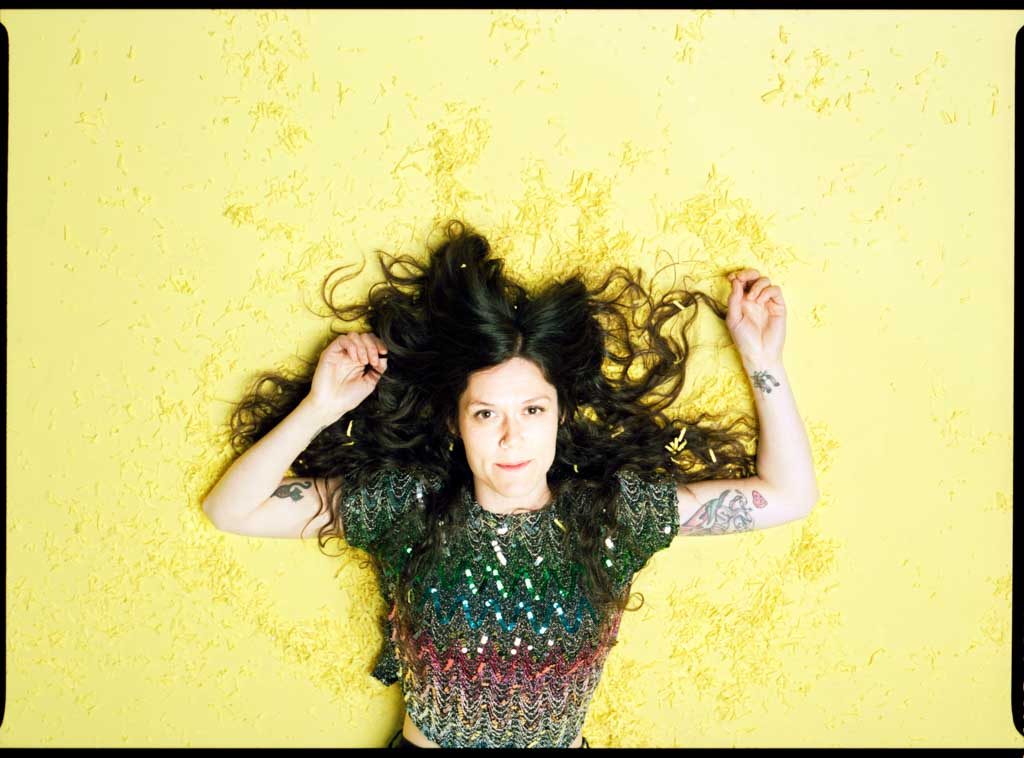
“I ALWAYS UNDERSTOOD THAT DAD WAS A MUSICIAN,” Lilly says over a spread of home fries, eggs over medium, and a biscuit. The Biscuit House on Gallatin Pike is slammed. Families stuffed in booths drop forks on plastic plates, slurp hot coffee, and laugh loudly.
It wasn’t until she went to college that her father’s place in the musical landscape became more apparent. “People would say, ‘Wow! Your dad is John Hiatt?!’” laughs Lilly. “Growing up, he was always just ‘Dad.’”
As a young girl, Lilly and her sister would join their dad on tour. They rode the bus. They sold T-shirts at the merch table. “He was doing a supergroup thing called Little Village with Nick Lowe, Ry Cooder, and Jim Keltner,” Lilly recalls. “I didn’t know who those guys were, but I remember that Nick was funny and Ry was cool and Jim was really cool.” She pauses and smiles, looking into her second cup of coffee. “Looking back, it was neat. He was a sweet dad for letting us hang out on tour.”
Being raised by a full-time musician, Lilly felt confident that she would follow in her father’s footsteps. She started writing songs when she was ten. By the time she was twelve, she was learning to play guitar. Her songs needed accompaniment, but her diligence with guitar left much to be desired.
“My dad signed me up for lessons but I never practiced. I still don’t,” she admits. “I’m not one of those people with a super diligent work ethic. I’m persistent, but I struggle. I did as a twelve-year-old, and I still do.”
She goes on to admit that rehearsing “Joyful, Joyful, We Adore Thee” was an insurmountable hurdle, while learning “Linger” by The Cranberries was instantaneous. It was the ’90s, after all. Who wouldn’t want to learn a jingly downer of a song?
Learning “Linger” on guitar was one thing. Singing the lyrics was another. “I was so quiet about singing that my parents never heard me sing until my high school senior talent show. I was never one of those kids who wanted to steal the show. I was shy about it. I still am.”
This makes for a difficult career choice. She makes a conscious effort to be aware on stage, but her determination to stay present while performing can be exhausting.
“It can be engaging when people connect during the show, but it’s still taxing on me. It’s worse when I don’t get anything back from the audience. It makes me vulnerable. I feel like people don’t like me,” she says with a smile.
“I’M PERSISTENT, BUT I STRUGGLE. I DID AS A TWELVE YEAR-OLD, AND I STILL DO.”
For Lilly, learning to accept vulnerability has been a process. This is especially true when it comes to reviews of her newest album, Royal Blue. “I learned a lesson last year,” she says with a slight wince. “I woke up one morning just after Royal Blue was released and saw I was tagged
on Twitter for a review. I was so excited. But it was a bad review. At the time, I was shattered. I was crying on the phone with my dad.”
Anyone who’s ever presented art to the public has, at some point, faced critical review. Negative feedback hurts. At least, it hurts at first. Many negative reviews are based on a belief that the critic thinks you can do better. They believe in you, but they publish their harsh feedback. With a bit of time and renewed self-confidence, Lilly put the feedback in perspective.
“That was my first bad review, and I didn’t know how to handle it. I panicked. Now, I think of it fondly. Bad reviews are a part of it, and not everyone is going to like you. One man’s trash is another man’s treasure. Even the good reviews, thank you for writing them, feel great. But they also get into your head. I trick myself into thinking I’m really good at this! All those voices start bouncing around and then I carry them with me when I write songs. That’s not when I write good songs.”
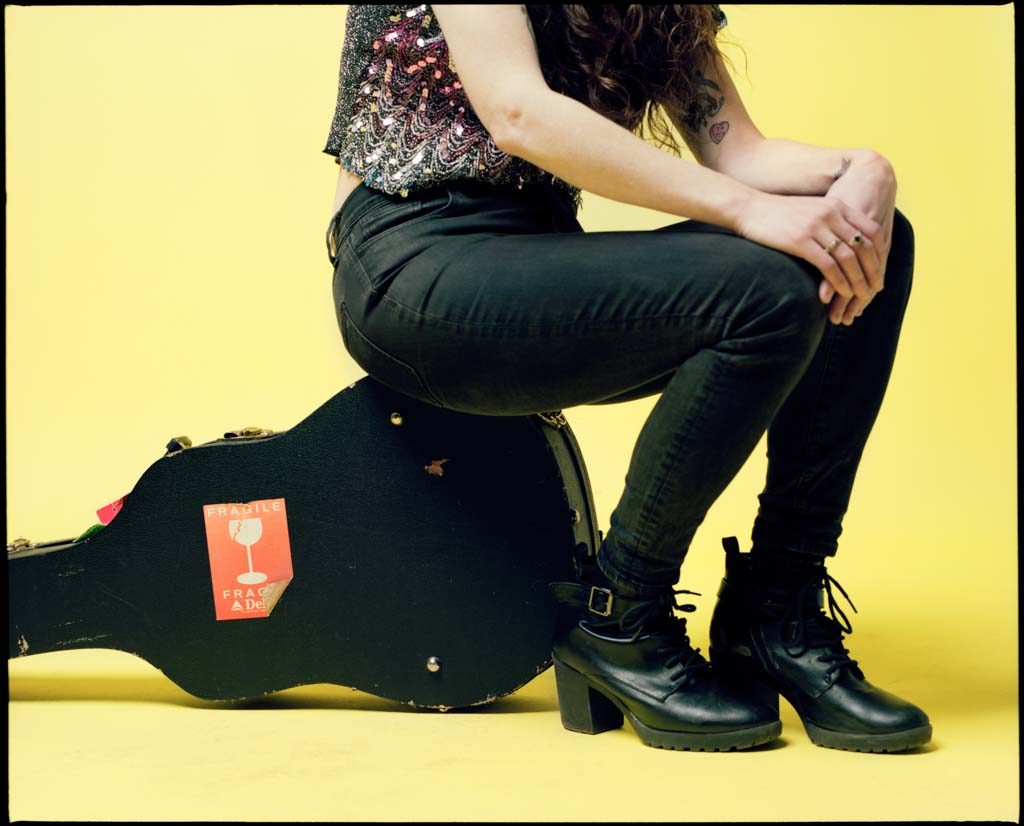
Writing good songs is the core of Lilly’s career. Performing and recording only market the material and generate income. Writing is central. The words hold the power. “I write good songs when I’m in a reflective, semipeaceful state. They pour out of me. Sometimes I get fired up and have to write something right now. That was a lot of Royal Blue. I was able to translate those feelings into songs.”
Indeed, Royal Blue is a swirling mix of emotions. The music is a crossroads of surf pop, synth rock, Americana, and folk punk, while the vocals are pure Tennessee twang. Created with a group of groove-oriented Nashville rockers and the trippy production of Adam Landry, the album zigzags through loss, redemption, and legacy. “
During the time I wrote those songs, there was so much heartbreak in my life. Both in relationships and with some family members. I was having thoughts about those feelings. Yes, there are some embellishments and some is pure fiction,” Lilly explains. “But I channeled those feelings.”
Coming to terms with her feelings has been an important part of Lilly’s life since she quit drinking. She didn’t hide booze or cling to the bottle every day, but she was concerned about her inability to control the direction of a night out with friends.
“I wasn’t excessively drinking all the time. But when I started drinking, I never knew what was going to happen. It could be three beers or an all-night thing. I never knew what would happen, and it was scary.”
She goes on to say, “My friends didn’t think I was an alcoholic. But I could get really fucked up sometimes. I don’t know. I don’t know what it looked like from the outside.”
Drinking stifled her. Sobriety was an awakening to the world. “I felt like I was doing everything for the first time,” she says. “I reverted to the shy little kid for a while. I didn’t know how to go out without having a drink. I didn’t know how to talk to people.”
In the years since she quit drinking, she has overcome her fears of talking to people. There is an unmistakable brightness in her eyes and an easiness about her. She’s engaging and excited. She’s funny. She clicks into a high-pitched voice when she makes fun of her quirkiness. Her openness is refreshing. She tells me how she loves the way our server touches her shoulder in a motherly way. She insists on boxing up the home fries that she never wanted in the first place. I have a feeling she’s giving them to someone— but she’s just not sure who yet.
Most importantly, she’s in love. She’s in love with Nashville, the people, the communities, the music, and the possibilities. “As a creative person, there’s a vibe in East Nashville that keeps me inspired. I feel motivated because everywhere you go, someone is doing something.”
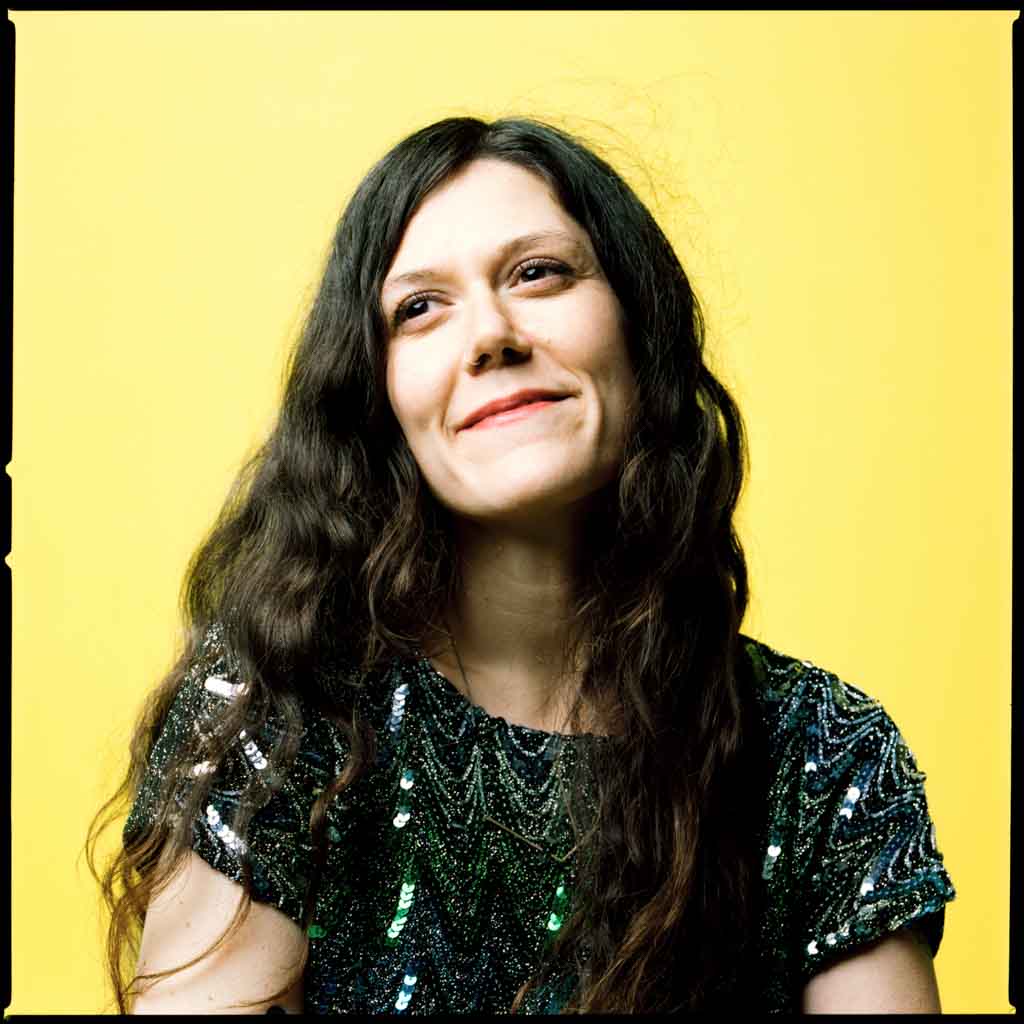
When she’s not writing or performing, she works at Headquarters, a coffee shop on Charlotte near Sylvan Park. Making coffee is predictable for Lilly. The work has an immediate gratification too. “I like making coffee. It keeps me sane and I know I can do it well,” she smiles.
Baristas can trudge through a bad day by relying on the caffeine addictions of their desperate patrons. By contrast, musicians have to be on. “That’s the job,” Lilly says. “But it’s only about four hours of work: pre-show, the show, and post-show. Sometimes I think I’m tired and I want to complain before I snap back to reality. Kacey Musgraves and Katy Perry probably don’t complain about their job.”
Everyone complains about their jobs, but some of us know better than to complain during the work day. It’s better to steal the fax machine and smash it with a baseball bat after hours.
When the check comes, I notice Cody Belew from season three of The Voice sitting a few tables away. I also see Brian Elmquist of The Lone Bellow paying his bill at the cash register. Nashville is overwhelmed with exceptionally talented writers and performers, and they are all struggling to turn a desire to create something into a longshot career. They are entrepreneurs, artists, and marketers. They are dreamers. They are doers.
Sitting across from me is Lilly Hiatt, “Somebody’s Daughter”—somebody who could give her career a big boost. But that’s not really how it works, and Lilly knows it.
“When I was younger, I thought I would play in the same places he did,” she admits. “But the older I get the more I realize how hard my dad worked for those things. I have to do the same thing. I never thought it would be handed to me, but I didn’t know how hard it would be until I started doing it on my own.”

